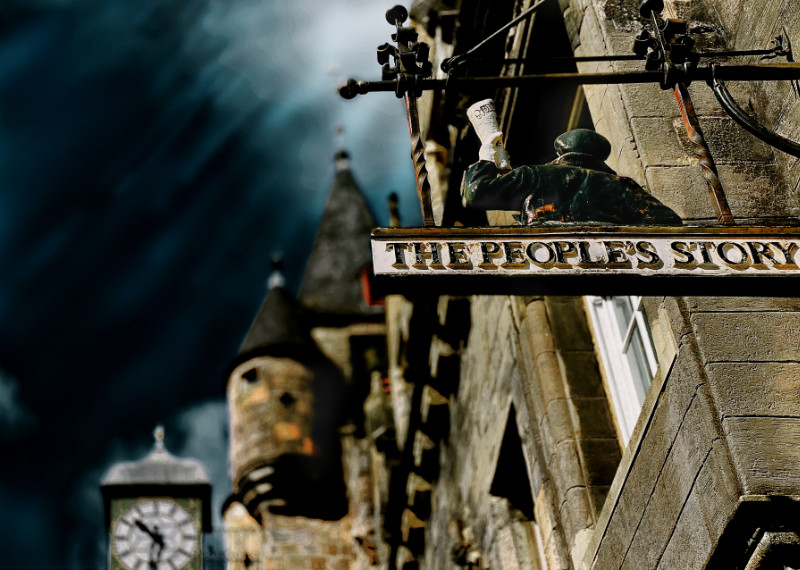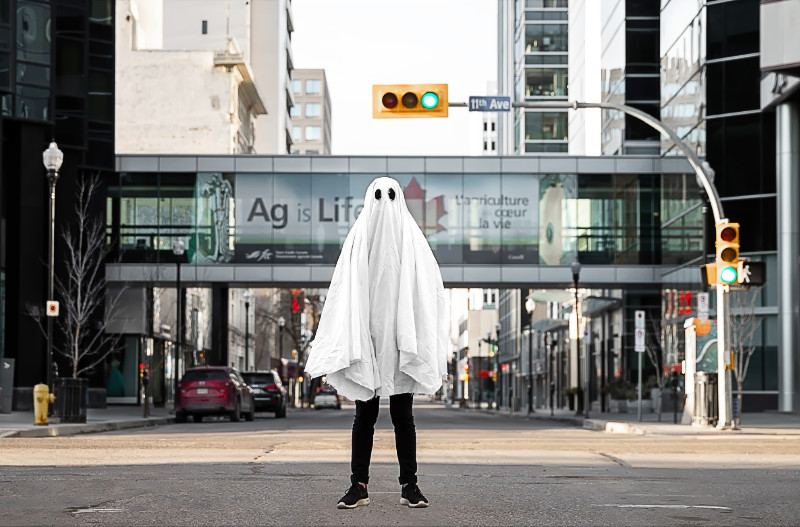Uni I: You majored in what?

In this post:
Did you go to college? Do you ever wonder if you could have picked a more interesting or glamorous discipline than the one you majored in? And if you didn’t go to college because everything sounded so boring you didn’t see what was the point, would you have wanted to know more about some other exciting academic disciplines? Well, I did wonder if my own college experience would not have been more rewarding if I had chosen differently than I did.
Today’s post is the first on a four-part series in which I tell you about some cool and unusual stuff that one can study in college, either at the undergraduate, graduate, or certification level. Read on to find out more.
A while ago, I got a PhD in Chemistry because at the time it seemed like a great way to show myself of what kind of geek matter I was made. That was a log time ago. Lately I’ve been wondering if my time would have been better spent in something with a little bit more pizzazz, something that was actually valued and well remunerated. Don’t get me wrong, my education got me out of poverty and into the arms of my awesome husband, whom I’d have never met if I didn’t follow the path I did. However, sometimes I wonder if something else would have been more productive and/or satisfactory.
A few years ago when I was still in Qatar, and seeing how that was a dead end I wanted to find another job, I was researching the University of Edinburgh, which had published a lecturer position in battery research that seemed as if they had written it with my CV in hand. That was just before Brexit, then followed Covid, many things were paralyzed by the uncertainty and you can very easily extrapolate that my interest didn’t go anywhere. But as I was going through their webpage to get to know about the institution that I wanted to join, I found something fantastic about their academic programs which made me like them even more. Not their research facilities, nor the professoriate or the student body; what caught and held my attention was the fact that they had an academic program in parapsychology. I filed that away in my memory bank, dormant until I had the chance to explore that tidbit of public information that had been nonetheless a secret to me.
That got me thinking about what people do for a living and how they get prepared to do what they do for a living. But that is a question to answer another day because what I thought about more was how many things in which you can get a college degree or certificate are out there that I have never heard about until later in my life? And also, how lack of access to that very public information is affecting the aspirations and vision of new generations of people that want to do something useful with their lives and had realized that not every child that dons a lab coat can be or would want to be a doctor, not everybody who likes sports can be Michael Jordan or Mónica Puig, and not everybody who sings in the shower can be Taylor Swift, or Ricky Martin.
So I thought that I would satisfy my curiosity and do a public service by researching this topic a little bit more, and make a series of posts in which I explore a bunch of disciplines in which I didn’t know one could get a college degree or certification. If you get really fired up about this, there is additional information at the end of the post, in the References and Resources section.
First on the list, and the subject of this blog post, Parapsychology at the University of Edinburgh, Scotland.
But before we move on we have to agree what we are talking about. After all, a word or a term usually doesn’t have the same meaning in everyday language as in academic language, and that usually creates a lot of misunderstandings.
What is parapsychology? According to Wikipedia:
Parapsychology is the study of alleged psychic phenomena (extrasensory perception, as in telepathy, precognition, clairvoyance, psychokinesis, a.k.a. telekinesis, and psychometry) and other paranormal claims, for example related to near-death experiences, synchronicity, apparitional experiences, etc. It is considered to be pseudoscience and is rejected by a vast majority of mainstream scientists.
That is Wikipedia’s opinion and probably the normal use that we have for the term.
In the Koestler Parapsychology Unit (KPU) of the University Edinburgh they define it as:
Parapsychology is defined as ‘the scientific study of the capacity attributed to some individuals to interact with their environment by means other than the recognised sensorimotor channels.’ Research at the KPU examines the following main areas: extrasensory perception (ESP) and psychokinesis (PK), Beliefs and Experiences, Deception, and Historical and Conceptual Issues.
Obviously, the authors of Wikipedia's article don’t fully agree with the professors in Edinburgh. If you ask me, I'd pick the definition of a cohort of professors in a prestigious academic institution any day over that of Wikipedia except, of course, in matters of diversity and inclusion, an area in which most academic institutions in the world suck.
Back to parapsychology, KPU claims that about 50% of the population believes in the paranormal; my personal opinion is that it is much more than that but a lot of people won’t admit it. But wether or not parapsychology as a whole was indeed a pseudoscience, if a significant amount of people believe there is some truth to it, one ought to study and least why they do so. Why are humans so primed to believe in bullshit? Especially in this supposedly advanced and educated times of Wikipedia in which we live.
I also cannot think of a more exciting location for a school of parapsychology than Edinburgh, with the possible exception of Transylvania. I have to admit that the existence of this unit within the psychology department fills me with wonder. It is like finding out that Hogwarts, in point of fact, exists somewhere in the greater London area and not in the Warner Bros Studio Tour London’s plastic byways.—To be sure it doesn’t, but skeptics might be welcomed to look, but probably not.
The cherry on top of the cake, or I should say, the two cherries are that (1) anybody can participate in one of their research studies, they even have an online register were you can communicate your interest, and (2) There is an online introductory course!
I might have or might have not communicated my interest to participate in a study. If I did, and if I do get picked, I’ll let you know how it goes.
About the online course, the title is An Introduction to Parapsychology, the description states that:
"The course will teach you about the methods parapsychologists use, the results of ESP and PK research, the psychology of paranormal beliefs and experiences, and how to think critically about the paranormal.”
They also clarify that:
"The course will not teach you how to be ‘psychic,’ read minds, be a ‘ghosthunter,’ or communicate with the deceased.”
How disappointing.
We cannot communicate.

Nonetheless, they have a long waiting list of people willing to pay 300 GBP (417.27 USD) for the opportunity to participate in 12-week online course that doesn’t involve ghost hunting. Cool! Did I mention that skeptics are welcome? I might or might not be saving my pennies for next year.
Stay tuned for another exciting academic adventure in my next post. Meanwhile, do you know of any other academic field of study that sounds unusual and therefore really cool to pursue? Let us know in the comments.
Did you like this post?
Then you will probably like:
References and Resources:
- Parapsychology in Edinburgh
- Register your interest to participate in registered studies
- Introduction to parapsychology course